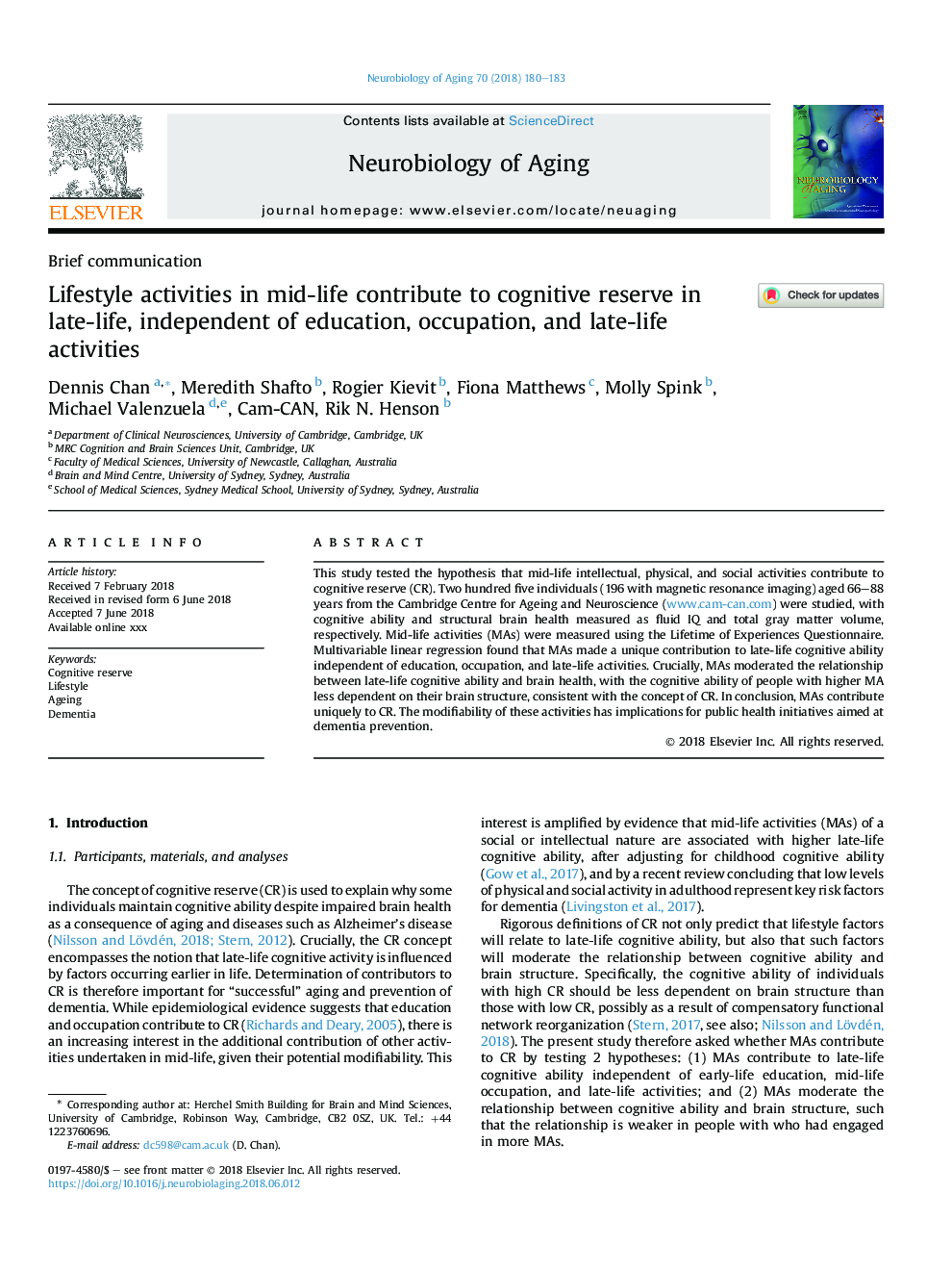| Article ID | Journal | Published Year | Pages | File Type |
|---|---|---|---|---|
| 6802876 | Neurobiology of Aging | 2018 | 4 Pages |
Abstract
This study tested the hypothesis that mid-life intellectual, physical, and social activities contribute to cognitive reserve (CR). Two hundred five individuals (196 with magnetic resonance imaging) aged 66-88 years from the Cambridge Centre for Ageing and Neuroscience (www.cam-can.com) were studied, with cognitive ability and structural brain health measured as fluid IQ and total gray matter volume, respectively. Mid-life activities (MAs) were measured using the Lifetime of Experiences Questionnaire. Multivariable linear regression found that MAs made a unique contribution to late-life cognitive ability independent of education, occupation, and late-life activities. Crucially, MAs moderated the relationship between late-life cognitive ability and brain health, with the cognitive ability of people with higher MA less dependent on their brain structure, consistent with the concept of CR. In conclusion, MAs contribute uniquely to CR. The modifiability of these activities has implications for public health initiatives aimed at dementia prevention.
Related Topics
Life Sciences
Biochemistry, Genetics and Molecular Biology
Ageing
Authors
Dennis Chan, Meredith Shafto, Rogier Kievit, Fiona Matthews, Molly Spink, Michael Valenzuela, Cam-CAN Cam-CAN, Rik N. Henson,
